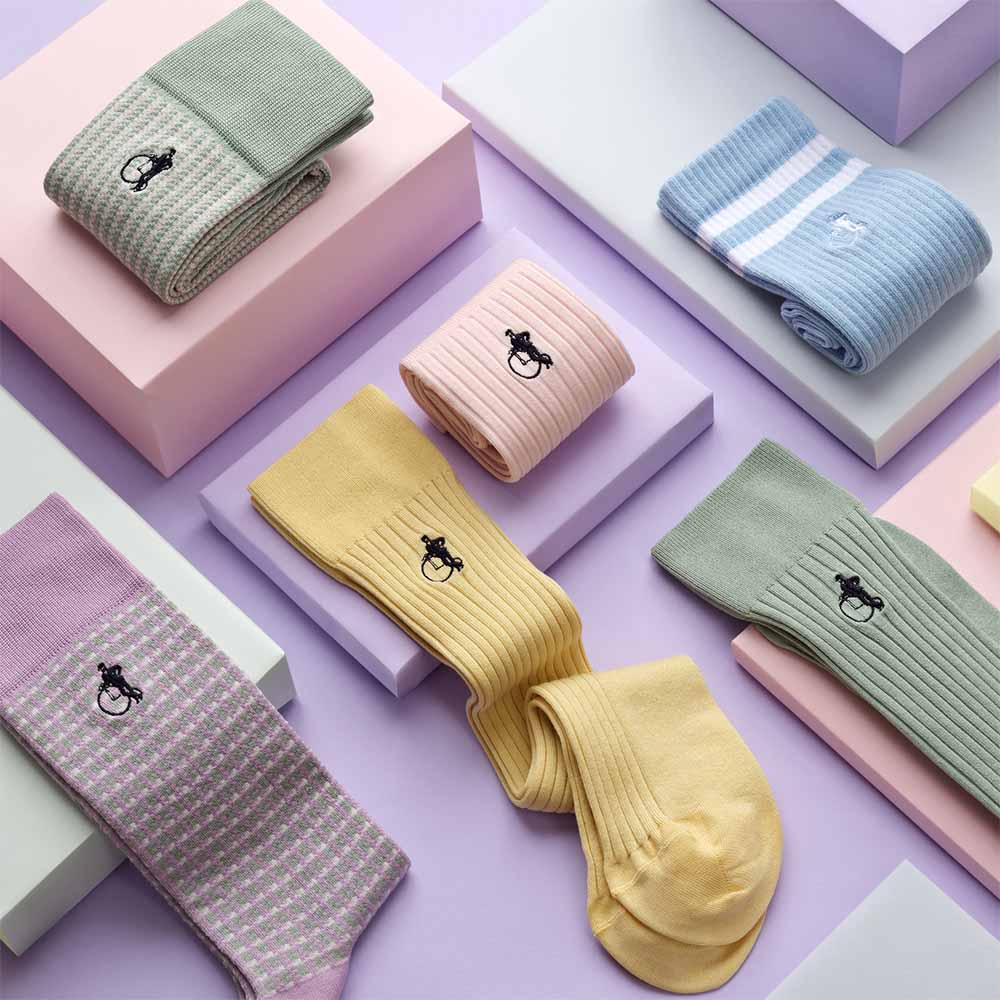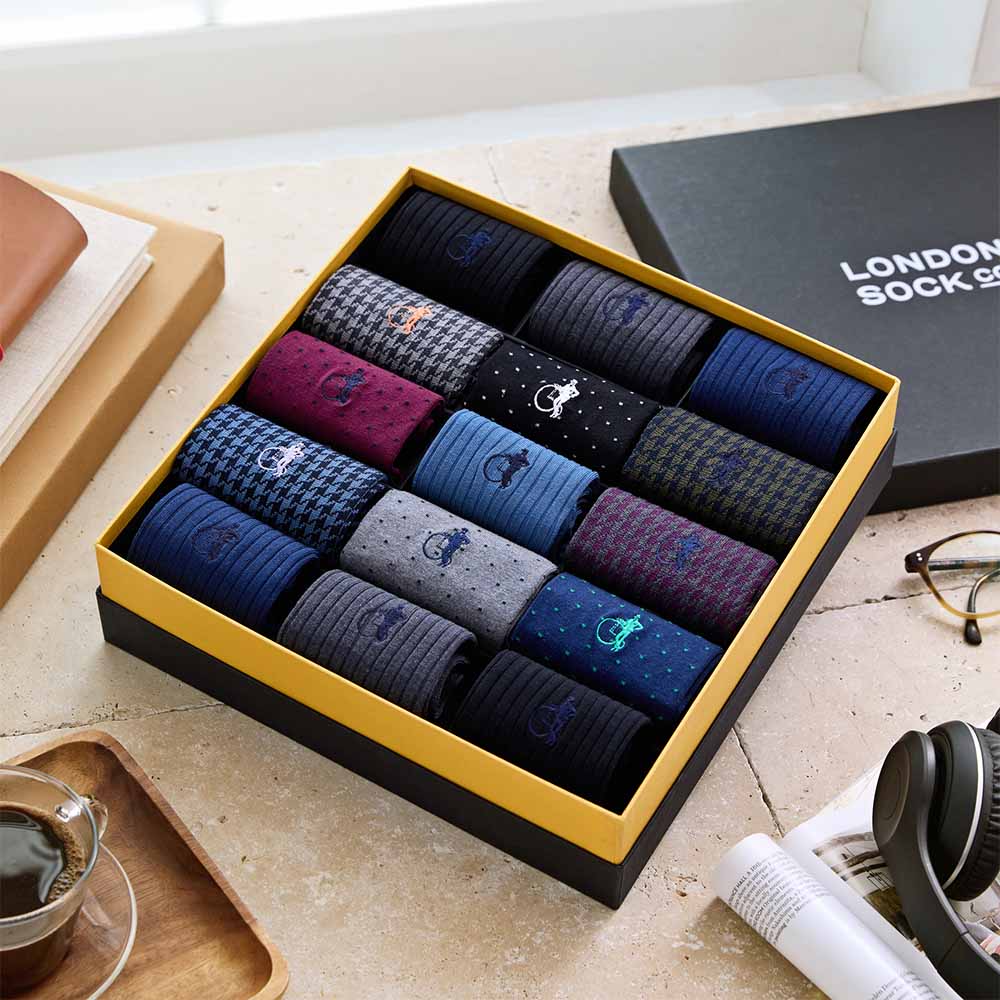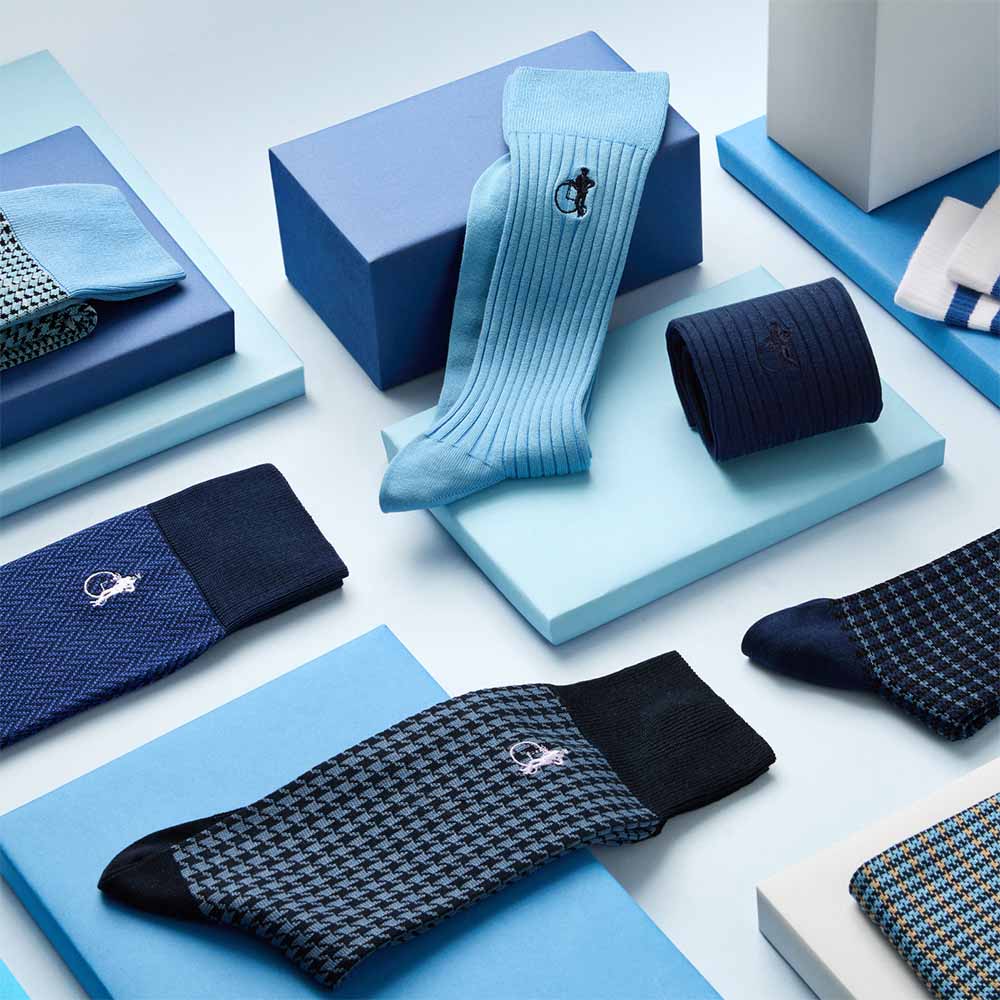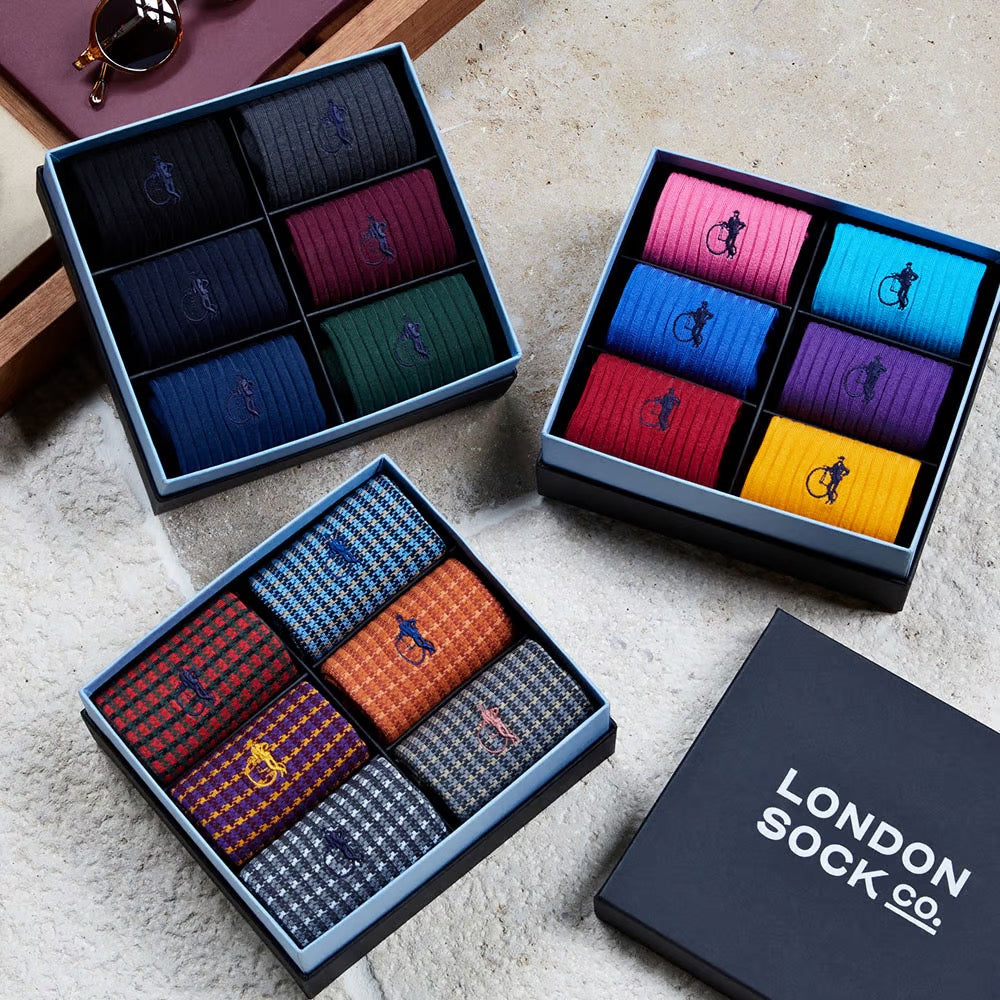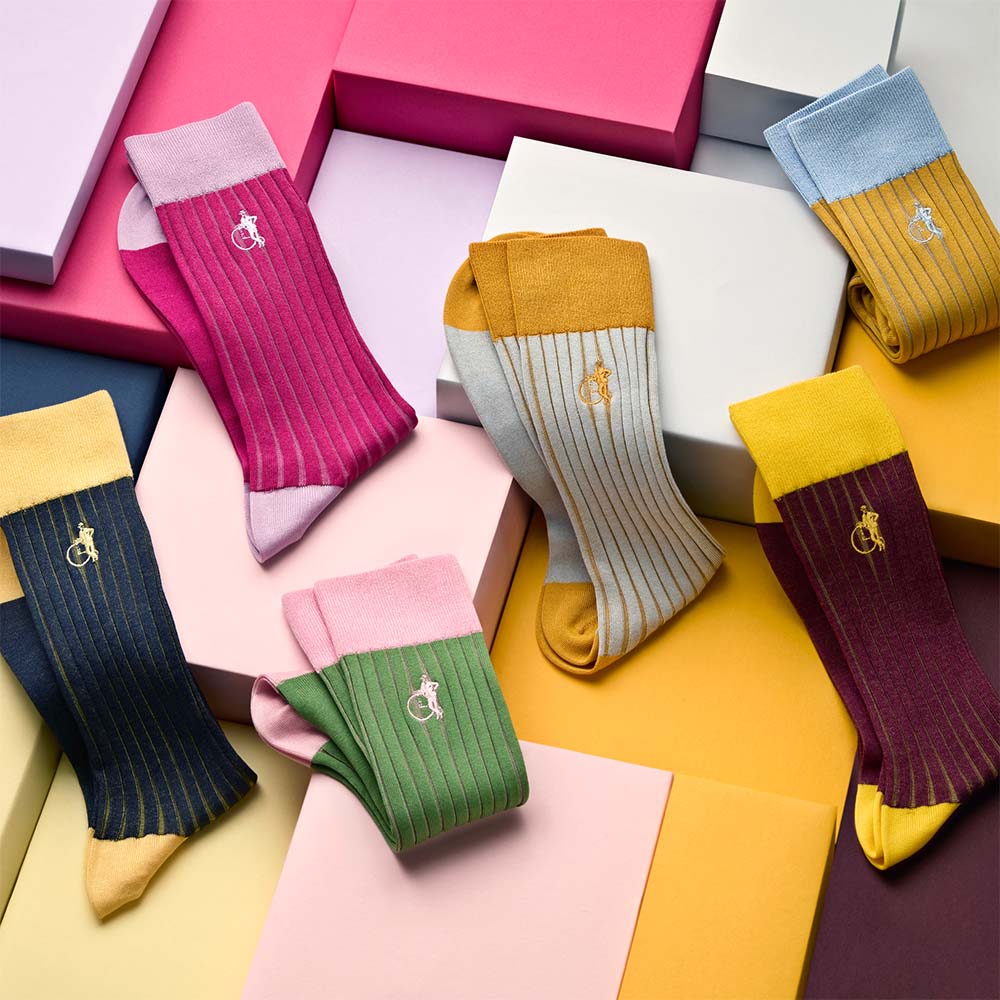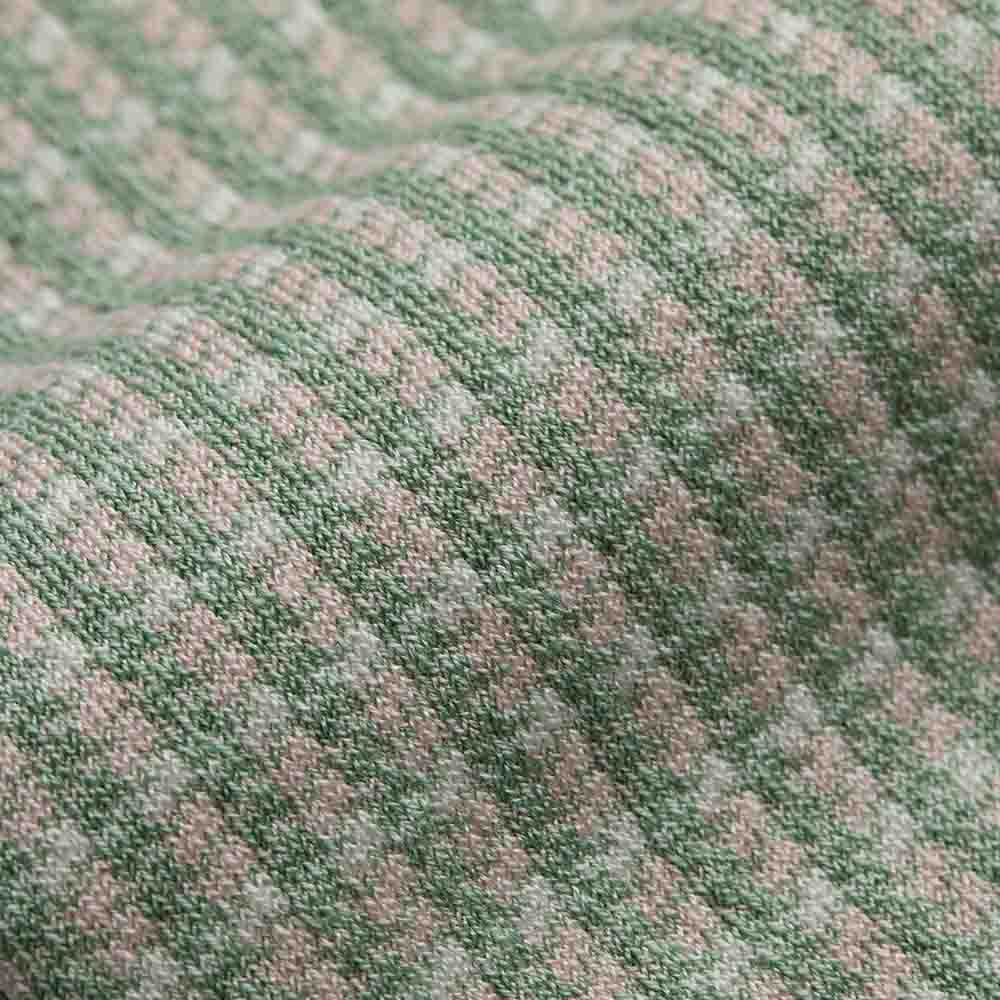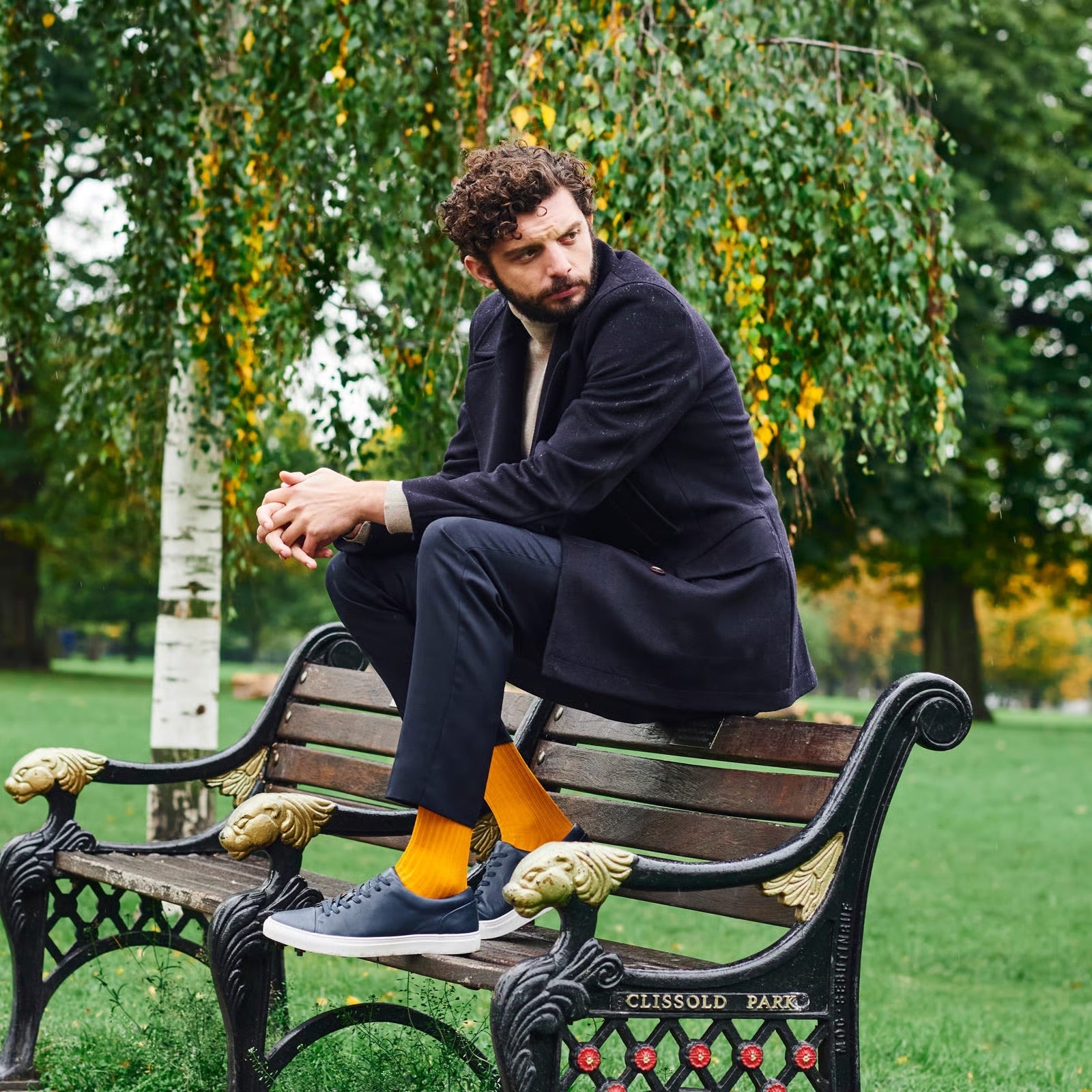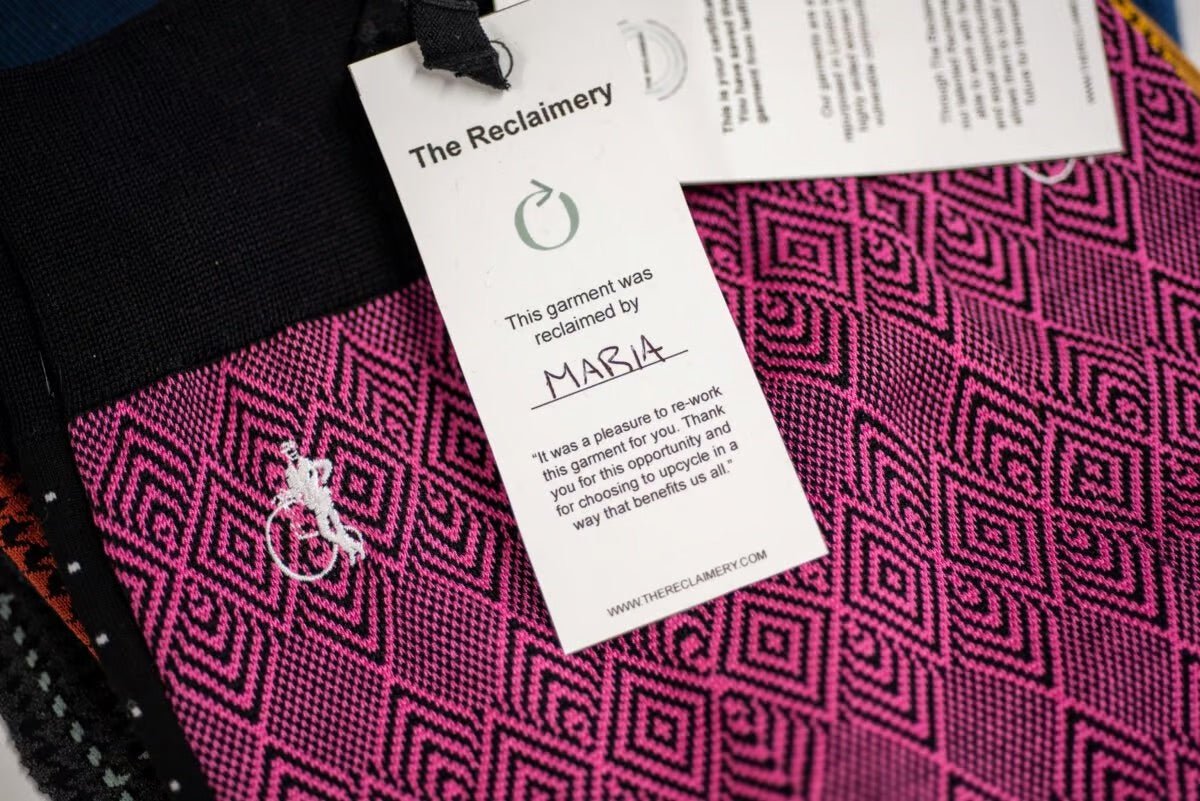
LSC Heroes: Closing the Loop with Juliet Herrera
Small steps towards big solutions – we know they can make a difference. Which is why this year we wanted to take our annual Sock Amnesty to the next level. We wanted to use the donations this year as an opportunity to close the loop on the lifecycle of these socks by upcycling them into warm, useful items for those facing homelessness. We found our partner for this project in Juliet Herrera, founder of The Reclaimery.
Born in Colombia, Juliet has always been passionate about fashion – but also about using it to make a positive impact on the communities around her. Her talent for designing, sewing and repurposing garments has seen her own her own ateliers in Spain and London as well as help clients edit clothes into exciting new pieces. However, it was the pandemic that pushed her to embark on her newest venture – The Reclaimery. With a mission to transform fashion into a more circular industry while supporting positive environmental and social change, The Reclaimery works with local London communities to give them the training and skills needed to upcycle and repurpose clothing into new, fashionable and wearable pieces.
In our latest interview for our LSC Heroes series, we spoke to Juliet about her passion for positive change in the fashion industry and how The Reclaimery is helping London Sock Company’s Sock Amnesty to support those in need but also close the loop.
What inspired you to start The Reclaimery?
I founded the Reclaimery because I was looking to start something with more purpose and meaning, that would also have a positive impact on the planet and struggling communities.
Previously, I had my own fashion label and I was always looking for opportunities to be more sustainable but struggled to do so. The pandemic brought many challenges but also gave me the time to pause, reflect and refocus on what was important to me. My business had effectively halted and I found myself spending days on end reading and researching the impact the fashion industry was having on the environment. It was in this moment that I realised the need to do something about this.
Is upcycling a relatively new interest for you?
Not at all! I grew up in rural Colombia, where much of my childhood was spent with my family. My aunt inspired me from a very young age to transform old clothes into new and fashionable pieces. I actually learned how to sew at eight years old, and I began helping less privileged children by reusing the fabric from my family’s old clothes to make new garments for them. This sense of community and the recycling of clothing for others, inspired me and ignited my passion for fashion and for using fashion to make a difference.

Juliet with one of her Reclaimers
When coming up with the idea for The Reclaimery, what was important to you?
I always want to contribute as positively as I can to others in what I do. Whether it was helping to make clothes for those in need in my hometown while growing up, or starting a foundation with my mother in Colombia, focused on educating children. For me it was a given that a project like this would also be something that could help support communities in vulnerable positions by creating paid opportunities for them. I am also currently working with the Centre for Fashion Enterprise and University of Arts London as part of a project, to support the community of Poplar in London, where my studio is based, with workshops and training to upskill members of that community.
Why do you think it is more important than ever that the fashion industry looks towards repurposing and a circular model?
Currently, there is far too much overproduction creating unnecessary waste and greenhouse emissions. The fashion industry is responsible for 10% of annual global carbon emissions – that is more than all international flights and maritime shipping combined. At the current pace, the fashion industry’s greenhouse gas emissions will surge by more than 50% by 2030.
The most effective way to reduce waste is to not create it in the first place. Making a new product requires a lot of material and energy. Repurposing is one of the most effective ways to save natural resources and protecting the environment.
As you can see, it is so important that the fashion industry adopts a circular model and takes responsibility for the waste it produces. At the same time, there is also a social responsibility to make sure the industry’s employees receive fair pay and opportunities.

So how can the fashion industry do better?
It’s all about transforming brands into a new circular model – this isn’t an overnight process but we all need to start somewhere. The fashion industry needs to take responsibility for their environmental and social impact. This is ethically the right thing to do but it is also something that is becoming more important for consumers.
What is meant by a circular model?
What we mean by the circular model, or closing the loop, is considering the impact our product has once our customer no longer has a use for it. All too often items are discarded after use as waste and eventually end-up in incinerators or landfills. In a circular economy, brands will reuse and recycle all materials – eliminating waste and pollution to help support environmental regeneration in a “circular model”. There are lots of elements in this: ensuring clothes are durable not disposable with high quality, responsible materials; caring better for our clothes and normalising repairing rather than replacing; creating more opportunities for reselling, repurposing and recycling, to name a few. This kind of shift will take time and a collective effort from the fashion industry and consumers as a whole. But it is absolutely necessary that we all do what we can, even starting with small steps.
Why are you excited to partner with London Sock Company?
Both London Sock Company and The Reclaimery share a vision of making a positive impact on the environment and taking an important step towards reducing waste. We decided to join forces because of our shared values for responsible fashion and our commitment to reducing product waste and, ultimately, closing the loop.
Not only will we be helping LSC make vital items that will be distributed to the homeless, but we are supporting and creating paid opportunities for vulnerable communities here in London. The Sock Amnesty campaign is a small step towards achieving a circular economy in the fashion industry, it’s the little things like this – the small steps taken together – that have the power to make a big difference. Please keep sending in your unwanted socks so we can make as big an impact as possibe.

What will you be transforming the unwanted socks into with your Reclaimers?
We will be repurposing all the unwanted socks donated by London Sock Company customers into warm fingerless mittens and neck warmers which will be distributed to those facing homelessness by the wonderful charity Crisis.
What other plans do you have for The Reclaimery going forward ?
We have a lot of exciting things going on. Although we only launched this year, we are already working on a number of exciting projects with some very exciting brands. We have also just launched our direct-to-consumer service here in London, helping individuals to repurpose garments they already have – whether it is reshaping, resizing or redesigning. I’m really excited for what is to come!
You can still get involved in our Sock Amnesty! Find out how to send your unwanted pairs to us here. Follow along with The Reclaimery’s work at www.thereclaimery.com or on Instagram or Facebook.
Is there someone who you think we should chat to for LSC Heroes? Or are you doing something yourself that might inspire others that you’d like to tell us about? We’d love to hear from you. Send us a message on help@londonsockcompany.com.
